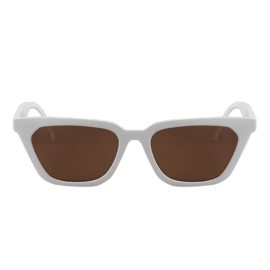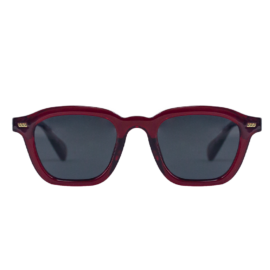/
The Environmental Footprint of Eyewear: Why Choose Sustainable Materials?
/
0

The Hidden Impact of Conventional Eyewear
Every year, millions of plastic sunglasses and prescription frames end up in landfills or, even worse, in our oceans. Traditional eyewear is often made from petroleum-based plastics, metal alloys, and synthetic coatings—materials that take centuries to break down. Beyond waste, the production of conventional glasses generates high carbon emissions, excessive water consumption, and harmful chemical pollution.
What’s Wrong with Traditional Eyewear?
🔸 Plastic Waste: Most frames are made of acetate or polycarbonate, which are derived from fossil fuels and contribute to plastic pollution.
🔸 Toxic Manufacturing: The production of synthetic frames releases harmful chemicals into the environment.
🔸 Non-Recyclable Materials: Many glasses contain mixed materials that make recycling almost impossible.
The Sustainable Choice: A Better Future for Our Oceans
Switching to eco-friendly eyewear means reducing our impact while still enjoying stylish, high-quality frames. Sustainable materials like recycled ocean plastics, bio-acetate, bamboo, and upcycled metals help minimize waste and lower carbon footprints.
🌿 Bio-Acetate – A biodegradable alternative to traditional acetate, made from renewable plant fibers.
🌊 Recycled Ocean Plastics – Frames crafted from plastic waste collected from our seas, turning pollution into fashion.
🌱 Bamboo & Wood – Naturally renewable materials that are lightweight and durable.
♻️ Upcycled Metals – Repurposed aluminum and stainless steel that prevent unnecessary mining.
Join the Movement: What’s Your Favorite Sustainable Material?
At Oceanides Eyewear, we believe in a future where fashion and sustainability go hand in hand. Tell us in the comments: Which sustainable material do you prefer for your eyewear? Let’s create a wave of change together! 🌊💙
Comparte esto:
Me gusta esto:











